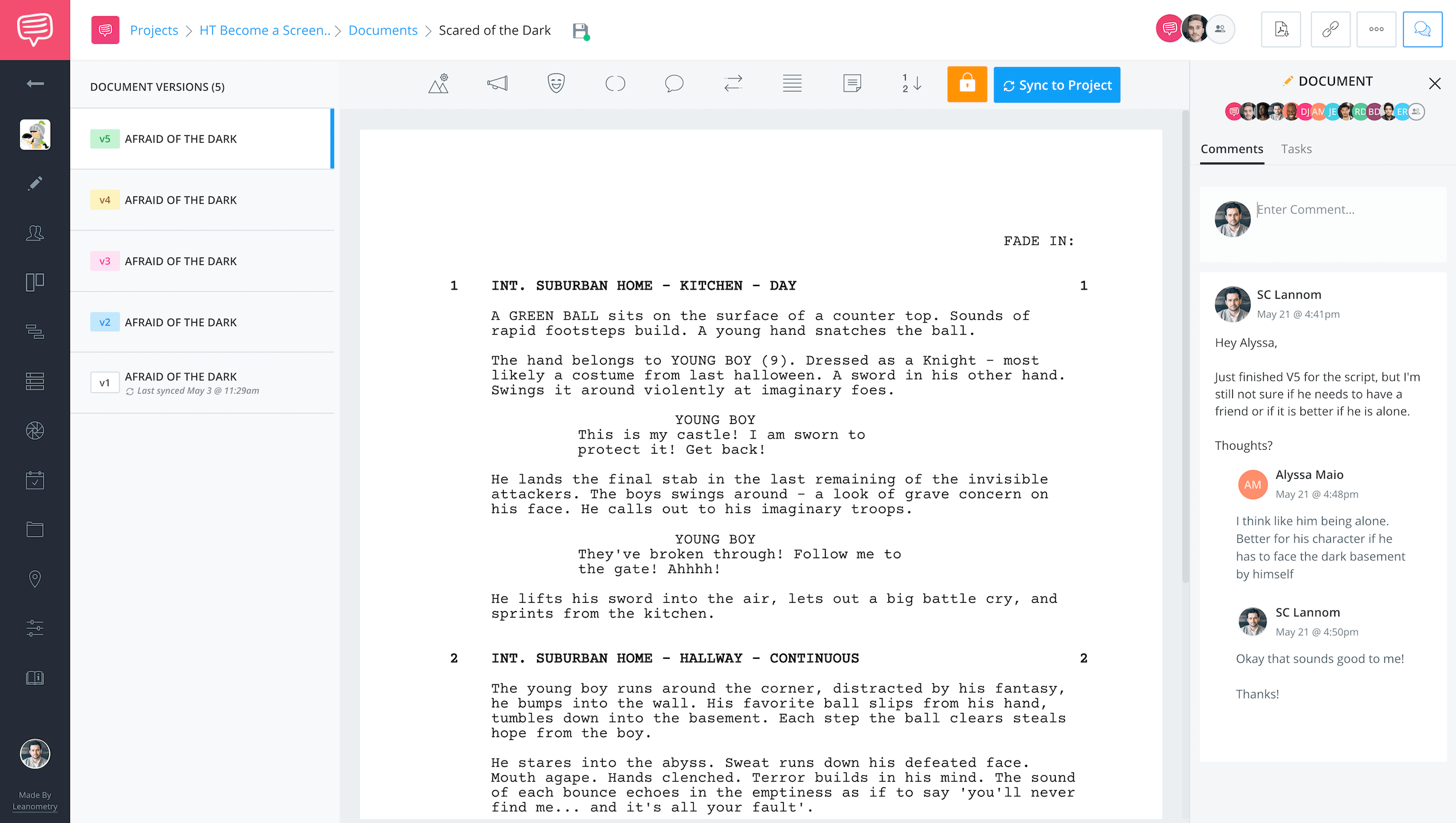Format for Script Writing
Write professional scripts
StudioBinder provides the correct format for script writing for short films, feature films and TV productions.
Path to Production
Guide your script to pre-production
StudioBinder's industry-standard script writing format prepares you for production. As you're writing your script, you can begin building your storyboards, breakdowns, shooting schedules, shot lists and more in one advanced workflow.
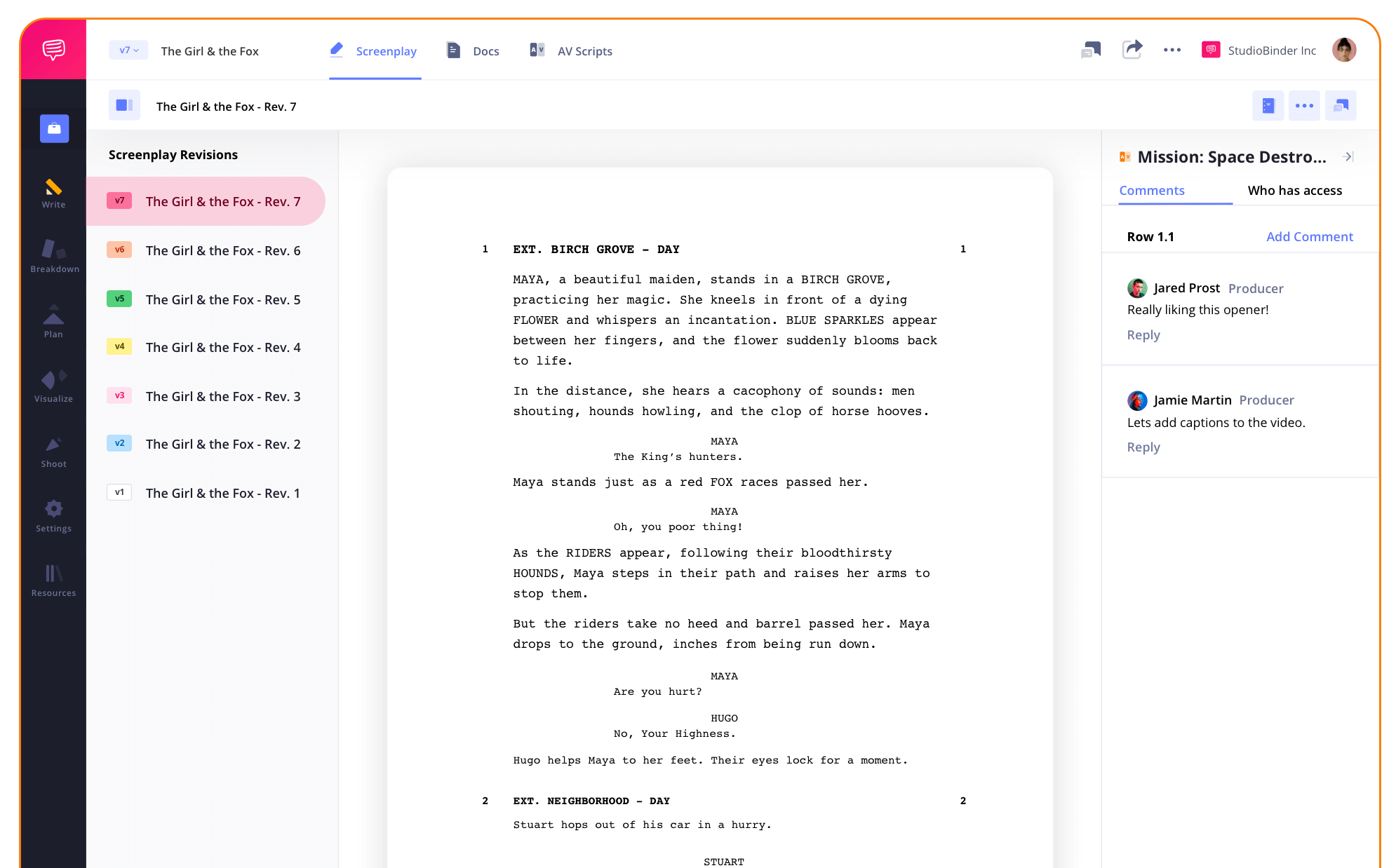
Screenplay Format Software
Professional film script format
StudioBinder’s scriptwriting software auto-applies industry-standard film script format for the layout, font size, margins, dialogue, action lines, and scene headings. Our platform features hotkeys, auto-completing text and auto-saves to help you stay focused on the writing.
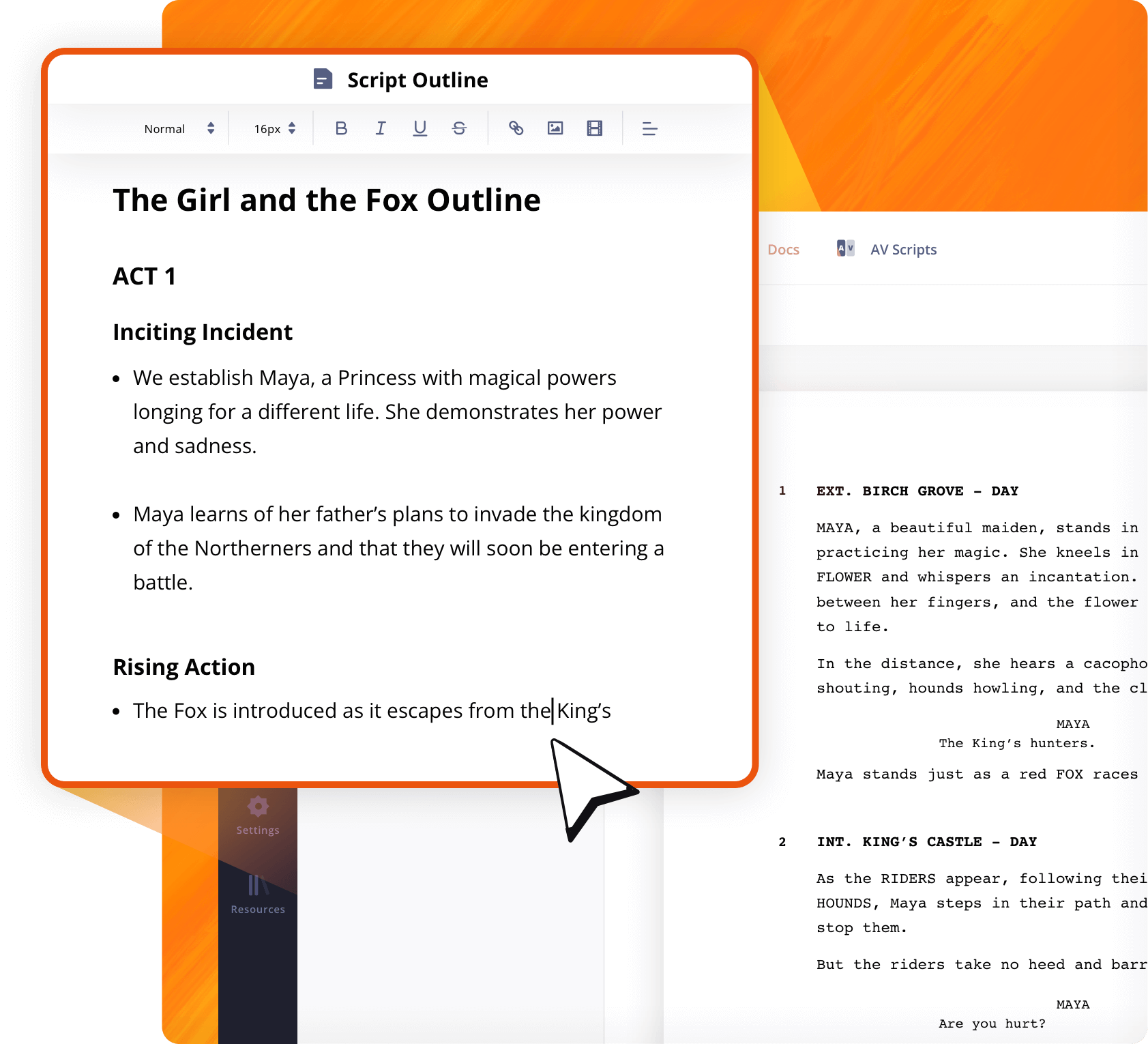
Script Outline
Organize your ideas in one place
StudioBinder's script writing software features a script outline feature to assist you with story planning and provides rich formatting options, including bullets, checkboxes, embeddable videos and photos.
Script Imports
Import with proper script formatting
If you've written your screenplay in Final Draft, Celtx, Fountain, Word, or have a script PDF, simply drag and drop the file directly into StudioBinder and we'll preserve the format for writing a script so you can continue writing in a snap.
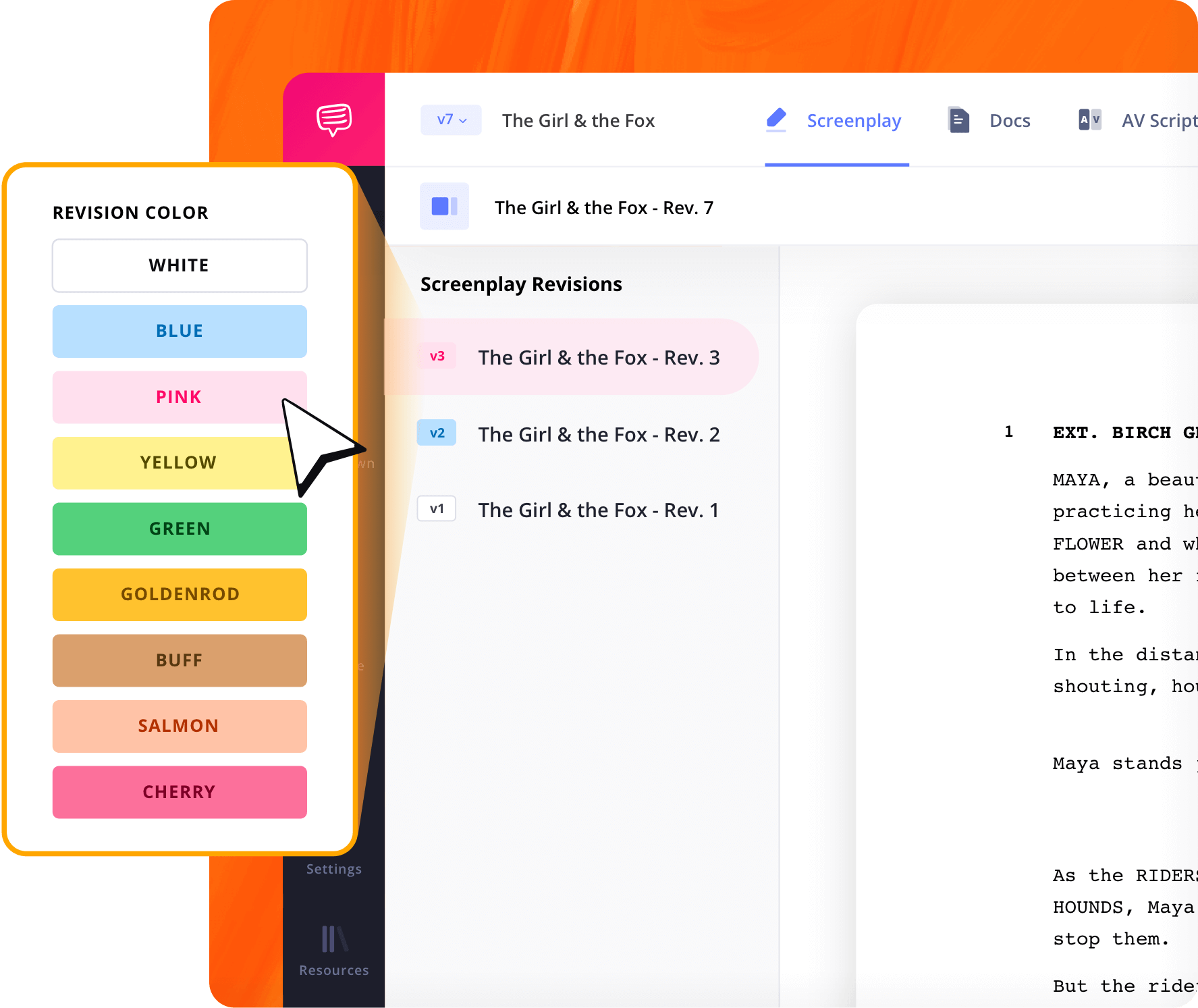
Script Versioning
Track your script versions
StudioBinder's script writing tool allows unlimited revisions of a script and every version is securely saved with WGA-standard color coding. You can reference and restore older versions at any point.
Script Collaboration
Get script notes from collaborators
Not only does StudioBinder feature the proper format for script writing, you can also share your script with collaborators with one click. Receive script notes, resolve them all in one central and seamless platform.
Script Syncing
Streamline the pre-production process
When your script is officially locked, re-sync it with your project so your whole team can start the pre-production process. From script breakdowns and shooting schedules to storyboards and call sheets, everything starts from the format of the film script.
Explore Features
More screenwriting features
Import Scripts
Import existing scripts from Final Draft, Fountain, PDF, etc.
Title Page
Generate a title page for your script that exports with PDFs.
Autosave Settings
Adjust auto-save settings, from 20 sec to 10 min.
Script Outline
A scratchpad for all your ideas, inspirations, and reminders.
Scene Numbering
Choose between digits, letters, or custom scene numbers.
Revision History
View and restore auto-saved changes from the past.
Lock Screenplay
Lock your script to prep it for the remaining pre-production steps.
Generate PDF
Export PDFs with customizations like layout, color, scenes, etc.
Export SBX
Export a .SBX file to import into other StudioBinder accounts.
Header & Footer
Include a custom header and/or footer with your script PDF.
Watermarks
Add watermarks to your exported script PDF for extra security.
Renumber Scenes
For a clean slate after locking a script, reset scene numbers.



"StudioBinder’s screenwriting program is intuitively designed for film and video professionals heading into pre-production."

Jourdan Aldredge, PremiumBeat
Script writing FAQs
Script writing basics explained
Screenwriting has a very particular format. The industry standard includes the same font (Courier 12-pt), margins, indents, etc. This format was devised over the years to be consistent so that each production can be scheduled and budgeted more easily.
You can write a script in Microsoft Word but you'll have to do all the formatting manually. To give you a head-start, there are templates and guides online to show you what proper formatting looks like using Word, which is a close approximation to the industry standard.
Every writer is different and we all have different processes but here are 5 steps to writing a script that any writer can try.
- Brainstorm — put any and every idea you have for the story down, even if it seems crazy.
- Outline — take those ideas and shape them into the basic outline of your story.
- Write — start writing individual scenes, starting with the most important or the most exciting because they will set the tone.
- Feedback — no matter how good or bad you think your script is, get feedback from those you trust.
- Rewrite — with your feedback gathered, do a number of rewrites to hone the script down until it's perfect.
The most basic screenplay structure is what's called the 3-Act structure, which can be summarized as Beginning, Middle, and End. Within these larger sections, you have 1-2 different plot points that either raise the stakes, change the trajectory, solve problems or introduce new problems.
Even if you've never heard of the 5 W's in screenwriting, you know what they are: Who, What, When, Where, and Why. Answering these questions both for the entire script but even for each individual scene will help ensure that you understand your script, your characters, their motivations, and everything every writer should know.
Similar to the 3-Act structure, the 5-Act version contains broad sections that can propel just about any story from start to finish. The five acts are typically labeled as such:
- Exposition
- Rising Action
- Climax
- Falling Action
- Resolution
If you're a beginner but want to write a script, it's much easier than you think. Here are some basic steps to help you get started.
- Read screenwriting texts and screenplays. This will help give you a foundation and a familiarity with the medium before you start writing yourself.
- Write in smaller chunks. Start with a short film script with a simple story and with repetition you'll be a much stronger writer when it comes to tackle longer and more complicated scripts.
- Get feedback. While it can be difficult to let people read your work, it is an essential part of the process that continues even for established and seasoned writers.
How to write a screenplay in StudioBinder
Open StudioBinder on your browser.
Click the Screenwriting tab on the project homepage.
Press the "New Screenplay" button and give it a title.
Open the Script Outline to organize your notes and plan out the structure.
Start writing your initial draft. Create a revision draft for each subsequent rewrite.
Press the "Sync to Project" button so that the script will integrate with other StudioBinder features.
When you're done writing and ready to start pre-production, click the "lock script" button.
Share your script with view-only links, invite collaborators or team members to get feedback.


Customers
Trusted by the Best
Modernizing production workflows at renowned studios worldwide.




















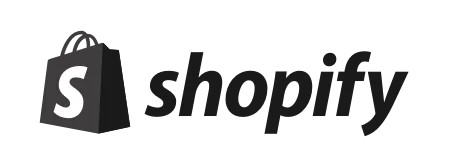



Today’s production teams use StudioBinder to streamline their process, and collaborate on better content together.
"I can be a part of the conversation and see when someone finishes a task."
Watch Testimonial ➜
"StudioBinder makes pre-production that much quicker for out team."
Watch Testimonial ➜
"Call sheet confirmations have instantly made our life that much easier."
Watch Testimonial ➜
